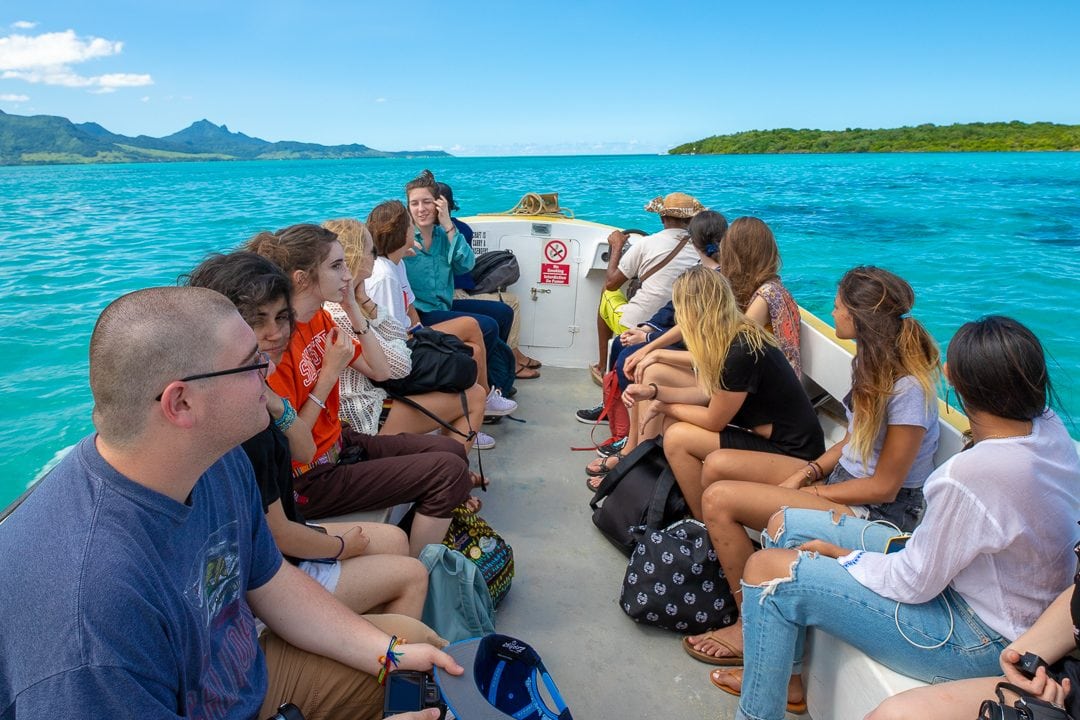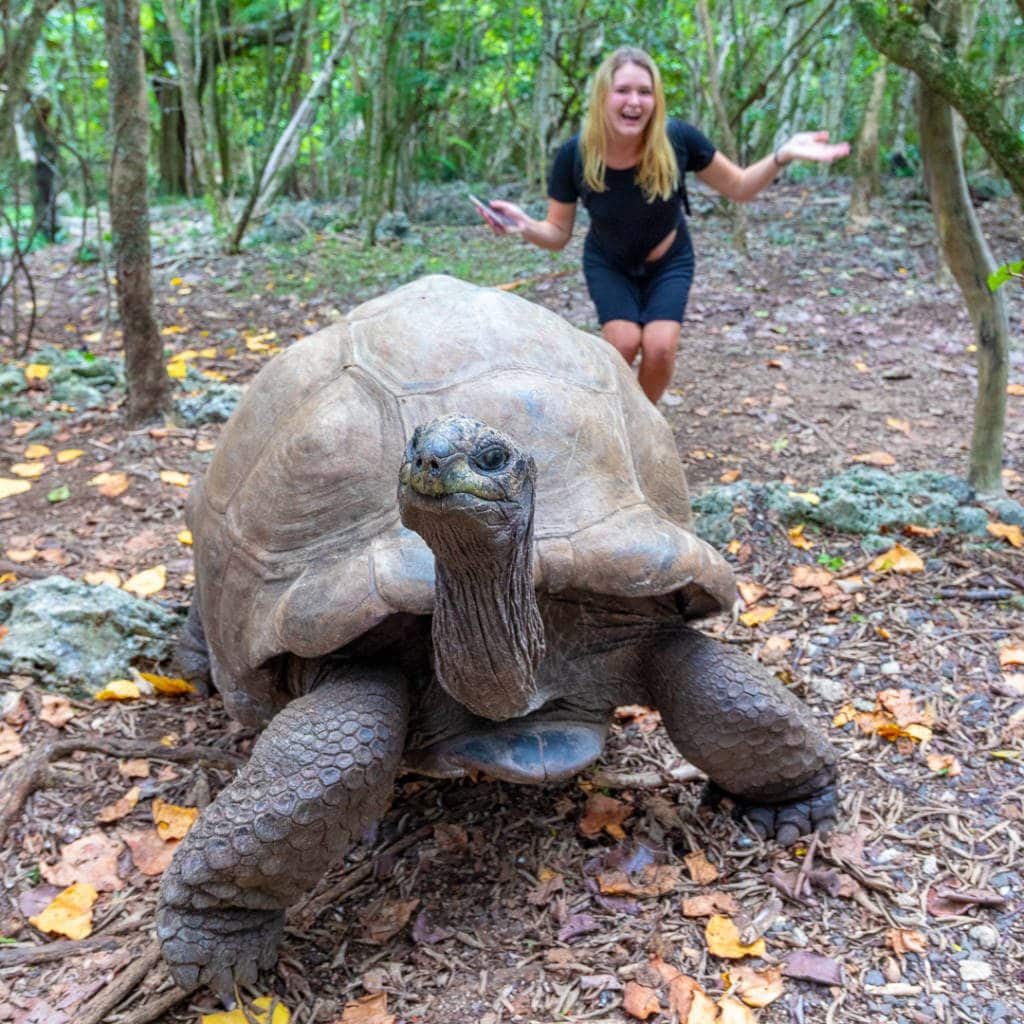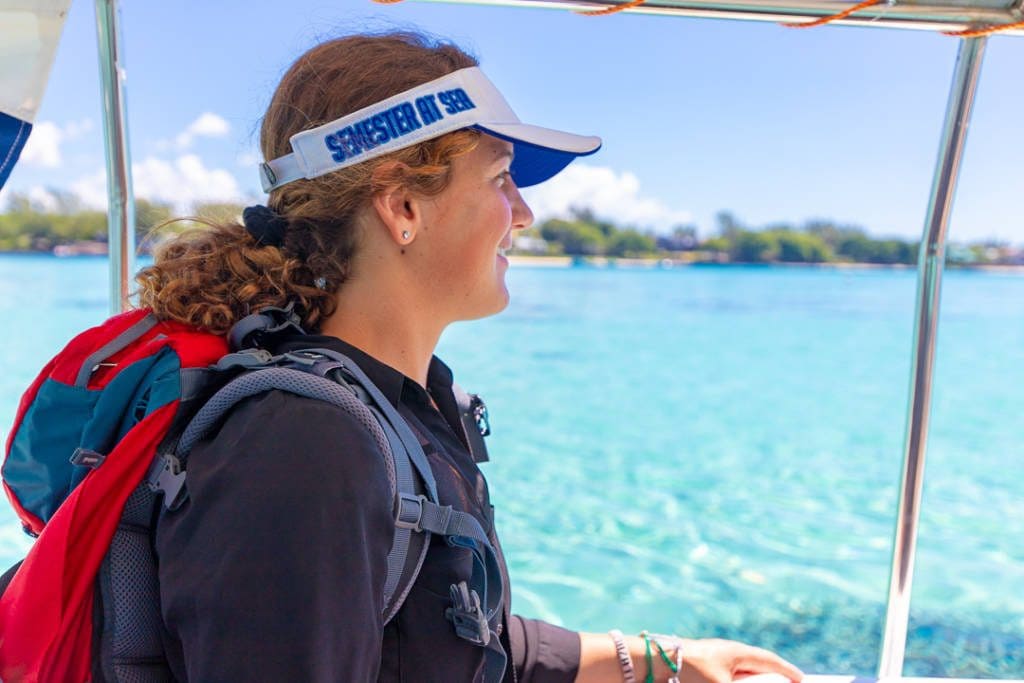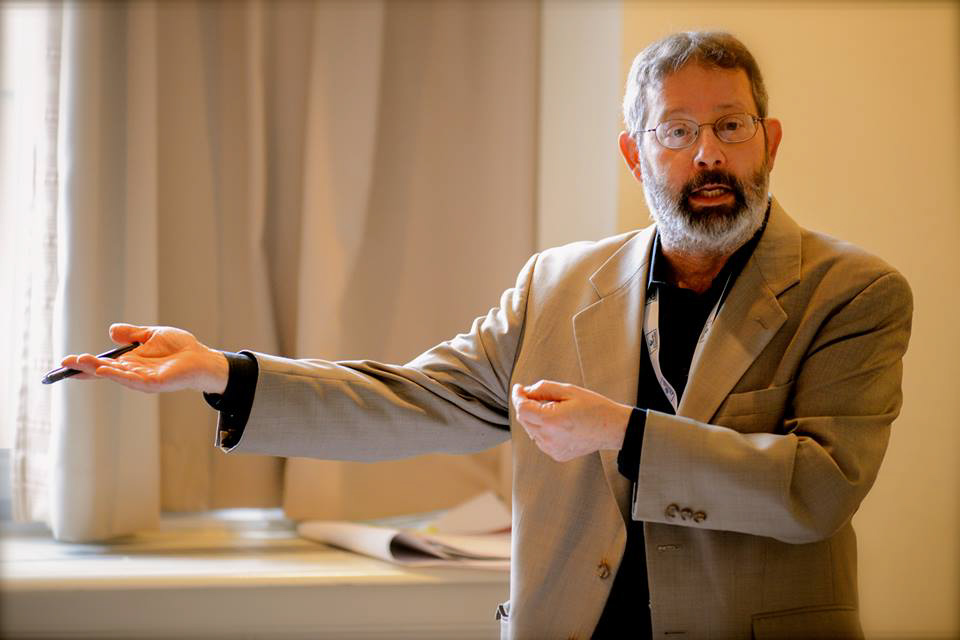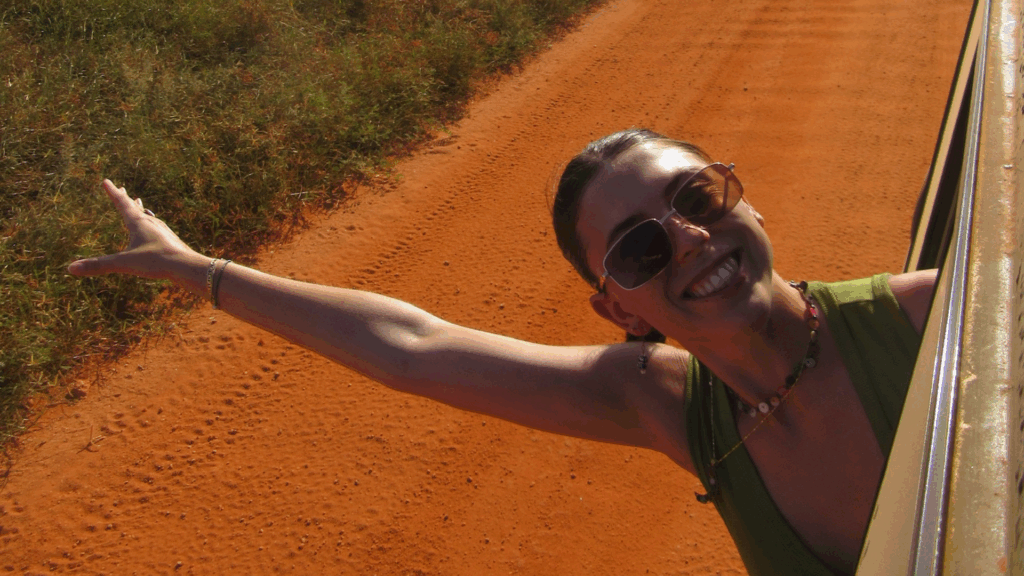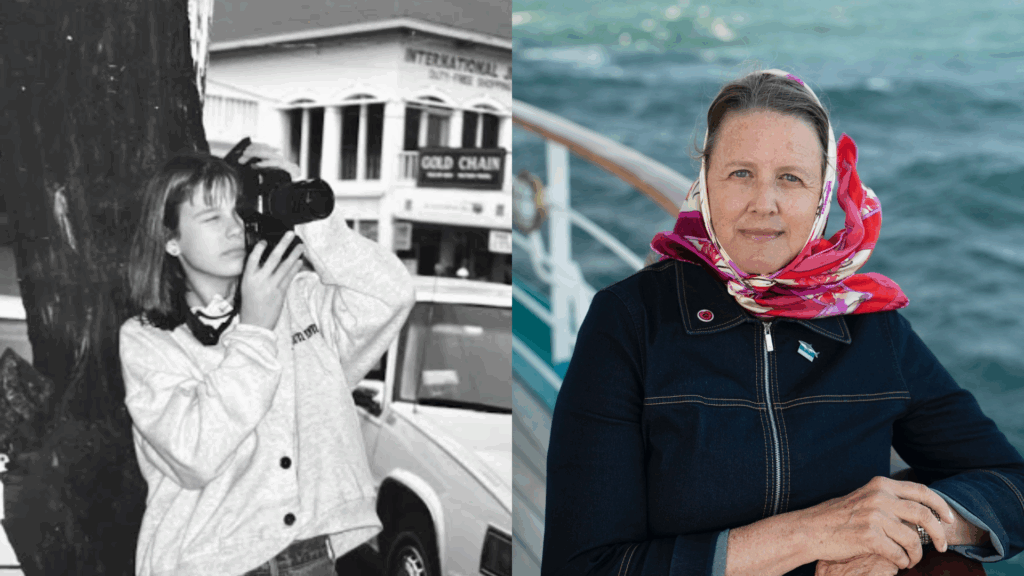Semester at Sea voyagers call the ocean home for an entire semester, but what do students do to give back to the ocean? How can they support its health and help preserve its beauty? Thanks to a renewed emphasis on ocean sustainability in Global Studies, Semester at Sea’s core course that includes the entire shipboard community, all of of Spring 2019’s field programs in Mauritius were designed around hands-on environmental conservation and eligible for Global Studies credit.
“We are very excited to have our field programs coincide with the oceans component of this voyage’s Global Studies, which will all come together in Mauritius. This will be a great way to reinforce what students are learning in the classroom with content in the field,” said John Duffy, Spring 2019’s Global Studies Instructional Coordinator.
Follow three conservation-focused field programs to see how our students are diving into environmental learning in Mauritius!
Visit to Mauritian Wildlife Foundation
Conserving endangered plants and animals that are endemic to Mauritius, the Mauritian Wildlife Foundation is an NGO that values the unique species that call this tiny island nation home. These biologists understand the importance of habitat preservation as a first step towards species conservation, which is why they started with the restoration of Ile aux Aigrettes nearly 20 years ago. This tiny offshore coralline island is a major success story for wildlife conservation because it is now home to several unique species, like the Aldabra tortoise or the Mauritian fruit bat, both of which students had an opportunity to see during their field program visit.
Students meandered through the island, learning about native trees and the importance of a healthy, biodiverse ecosystem. They also supported some of the habitat restoration work on the island by planting ebony tree seedlings, which are some of the slowest growing trees on the island.
“The highlight of the day for me was the visit to the Mauritian Wildlife Foundation. It is nice to bring more purpose to your tourism. On a beautiful island like this, it’s easy to just say ‘Wow, it is beautiful,’ but to go into an intentional project like this one and see that people’s hard work is making a difference reminds you to be hopeful about conservation work,” said Remy Ogden, a student from Colorado State University.
Threats from plastic pollution have been a major theme of Global Studies during the voyage, thanks to speeches from interport lecturers like Karina Holden, Director/Producer of Blue, and faculty members like oceanographer Laurie McConnico. Students have learned in class that plastic pollution is one of the largest threats currently facing marine life, and by 2050, it is predicted that there will be more plastic in the ocean than fish.
Because plastic never biodegrades, it breaks down into smaller and smaller pieces, called micro plastic, which can be ingested by fish and birds. But when 80% of plastic pollution in the ocean originates on land, these plastics can also wash back up onto shore, polluting pristine coastlines all around the world. Several groups of voyagers participated in beach cleanups around the island to help restore the shores of Mauritius, which like many island nations, bears the brunt of plastic pollution. This plastic pollution threatens endemic birds and fish, many of which are endangered or close to endangered.
“We picked up nearly four massive bags of trash from the beach in just a couple of hours. I could have kept going,” said Professor Bonnie Morris of UC-Berkeley, who led one of the beach cleanups. “I am feeling exhausted but inspired by the work of our group and the commitment of our students to removing plastics from our oceans.”
Coral Reef Education and Conservation
A field program designed in part by Spring 2019 Interport Lecturer Vassen Kauppaymuthoo, students visited Blue Bay Marine Park and other marine ecosystems around the island.
Voyagers evaluated coral health from above during a glass bottom boat ride over the reefs. When corals are stressed by condition changes such as temperature, light, or nutrients, they expel the symbiotic algae living in their tissues, causing them to turn completely white. This essentially starves the coral and they slowly die due to a lack of nutrients. Coral bleaching has exploded worldwide in the last decade, and nearly all coral reefs face serious challenges as the ocean environments around them warm.
“Seeing the bleached coral during our glass bottom boat ride made the problems facing reefs very real to me. It makes me think about the world in a way that I never had before, especially growing up in Colorado, where I don’t interact with the ocean a lot,” said horticulture student Sedona Lewis, also from Colorado State University. “I can conceptualize environmental issues in a global way now because I see what a huge role oceans play in our environment. I am more capable of understanding the scale and scope of all the factors that play into the problems we face with the oceans.”
Following their boat ride, students learned about coral survey techniques, which they then put into practice when they went out snorkeling for themselves. Finally, students visited mangrove forests, which provide valuable protection for coastline environments as a water filtration system and habitat for fish species.
After a day full of ocean education and conservation work, students returned to the ship inspired by their experiences in the field and were reminded how their choices in one corner of the world can impact the delicate marine ecosystems a world away.
